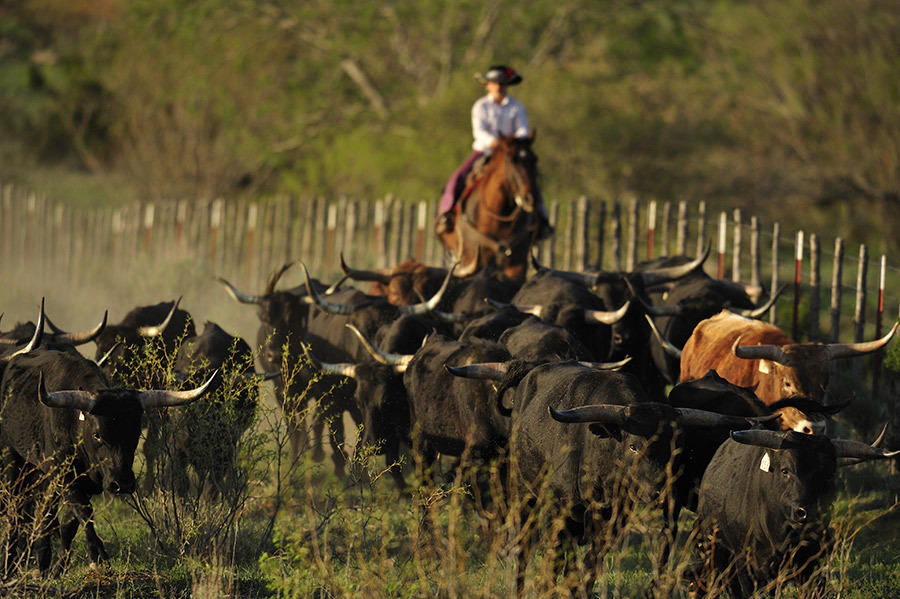



Change of Culture for Brazilian Processor BRF
ANALYSIS - Brazilian meat and food processing company BRF has given assurances that its primary pig and poultry operations are to remain in the company, following the sale of its beef fattening and slaughtering sector to fellow Brazilian processor, Minerva, writes Chris Harris.Speaking at a special conference in London to present the new strategy for the company and the third quarter results, CEO Claudio Galeazzi said that because of some of the markets that the company supplied it would be impractical to have third party suppliers for raw materials in the pig and poultry sectors.
He said that it would be essential for the company to have hands on control of the sanitary protocols and requirements and genetics.
“In the halal market for instance, you have to have upstream sanitary requirements and you cannot have a third party supply (of poultry),” Mr Galeazzi said.
“Poultry and pork will remain upstream.”
He added: “The Muslim countries have to have very, very strong sanitary arrangements in slaughtering and production.”
The slaughtering and deboning operations owned by BRF in the plants of Várzea Grande and Mirassol D‘Oeste, both located in the state of Mato Grosso, with a combined slaughtering capacity of 2,600 head a day and net revenue estimated at R$1.2 billion in 2012 were acquired by Minerva earlier this month.
In the deal, BRF took a 15.2 per cent share in Minerva and two seats on the board of the company.
There was also a supply agreement between the two companies, which will mean BRF will maintain its further processing capacity in beef products.
“We are focussing where we have value maximisation,” Mr Galeazzi said.
He added that the focus of the company was on areas of expertise and the beef segment was one area where their expertise was not strong.
The deal with Minerva is also expected to liberate working capital of about R$170 million within 10 months.
The company is also reviewing the dairy side of the business and Mr Galeazzi indicated that there had been some interest from some “very, very large companies worldwide”. However, he added that this is “just speculative as yet”.
Mr Galeazzi said BRF is undergoing a change in culture and strategy. Part of the change in the company is the appointment of a CEO for Brazil and the appointment of an international CEO, who is expected to be announced shortly.
Where the company had an industrial focus in the past, concentrating on manufacturing product and pushing it on to the market, not the focus was to be more on the core businesses and on the final clients and customers.
“We are changing from an industrial mind-set that pushes products to a market driven mind-set,” he said.
He said that in the past pushing product on to the export markets in particular had meant that there had been over capacity and price reductions.
And the company will be looking for inventory reductions in foreign markets that will give an adequacy of volumes to reduce exposure to commodities. In all BRF intends to reduce the volume of products to the export markets by 220,000 tonnes.
By focusing on the customer requirements, BRF intends to achieve a more solid customer base.
The company is particularly investing both effort and money in the Middle East, North Africa and SE Asian markets.
A $120 million processing plant in the Middle East is planned to be opened in June next year.
However, growth in the Middle East will be focused on specific regions.
In South America the company is to consolidate and restructure its facilities in Argentina and the rest of South America and it is looking to develop it “in-natura” products in Brazil.
BRF is looking to become a less labour intensive company and has axed 11 per cent of the back room staff and 164 lower and middle management posts – about 20 per cent of this level of management.
The company will be reducing capital expenditure in certain areas and redirecting money towards automation, modernisation, IT and logistics.
The company will be increasing expenditure on marketing and merchandising by R$200 million, which Mr Galeazzi said had been one of the first areas for cuts in the past.
The company is also consolidating the domestic sales team to avoid duplication of coverage and to expand out into areas that had previously been covered only by wholesalers to give a more personal service.
Mr Galeazzi said that BRF will continue to develop and look for acquisitions, but he warned that he was against large cash consuming investments.
Speaking on the company’s latest results and the outlook, CFO Leopoldo Saboya said that the figures had been affected by the requirement by the competition authority CADE to sell several product lines following the merger of Sadia and Perdiagao together with the economic volatility within Brazil and the price of soy and corn on the open market.
He added that there had also been considerable volatility on the export markets, with the Middle East in particular, one of BRF’s core areas, seeing a three per cent drop in prices in dollar terms.
This meant that a region that had been contributing to expansion had suddenly seen a drop in prices.
On the domestic market the weakness of the Brazilian economy, rent costs, poor employment and food inflation had all affected the food service market although he was expecting a change in the market for the fourth quarter of the year in the run up to Christmas.



